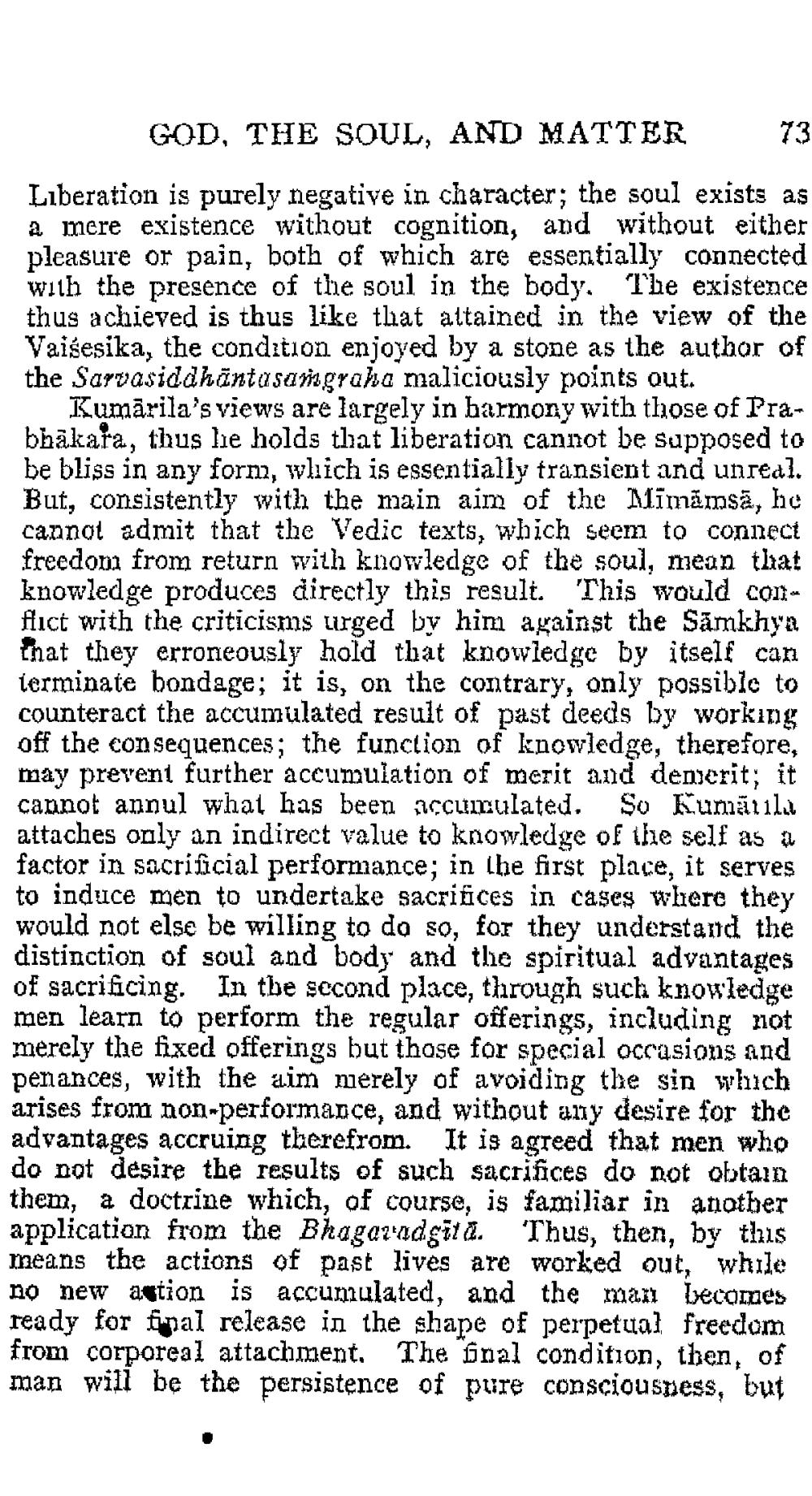________________
GOD, THE SOUL, AND MATTER
73
Liberation is purely negative in character; the soul exists as a mere existence without cognition, and without either pleasure or pain, both of which are essentially connected with the presence of the soul in the body. The existence thus achieved is thus like that attained in the view of the Vaisesika, the condition enjoyed by a stone as the author of the Sarvasiddhäntasamgraha maliciously points out.
Kumārila's views are largely in harmony with those of Prabhakara, thus he holds that liberation cannot be supposed to be bliss in any form, which is essentially transient and unreal. But, consistently with the main aim of the Mimämsä, he cannot admit that the Vedic texts, which seem to connect freedom from return with knowledge of the soul, mean that knowledge produces directly this result. This would conflict with the criticisms urged by him against the Samkhya that they erroneously hold that knowledge by itself can terminate bondage; it is, on the contrary, only possible to counteract the accumulated result of past deeds by working off the consequences; the function of knowledge, therefore, may prevent further accumulation of merit and demerit; it cannot annul what has been accumulated. So Kumänila attaches only an indirect value to knowledge of the self as a factor in sacrificial performance; in the first place, it serves to induce men to undertake sacrifices in cases where they would not else be willing to do so, for they understand the distinction of soul and body and the spiritual advantages of sacrificing. In the second place, through such knowledge men learn to perform the regular offerings, including not merely the fixed offerings but those for special occasions and penances, with the aim merely of avoiding the sin which arises from non-performance, and without any desire for the advantages accruing therefrom. It is agreed that men who do not desire the results of such sacrifices do not obtain them, a doctrine which, of course, is familiar in another application from the Bhagavadgita. Thus, then, by this means the actions of past lives are worked out, while no new action is accumulated, and the man becomes ready for final release in the shape of perpetual freedom from corporeal attachment. The final condition, then, of man will be the persistence of pure consciousness, but




